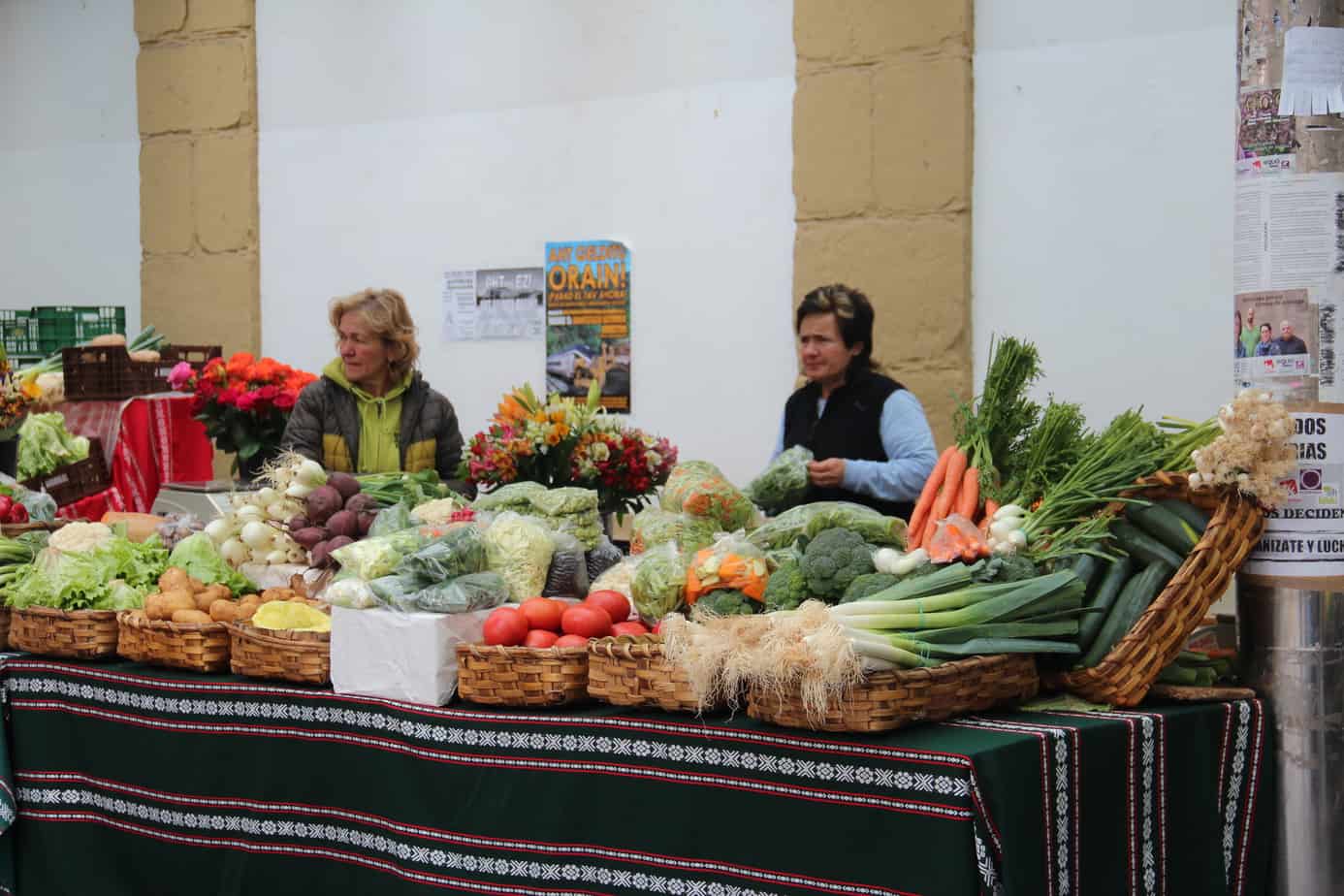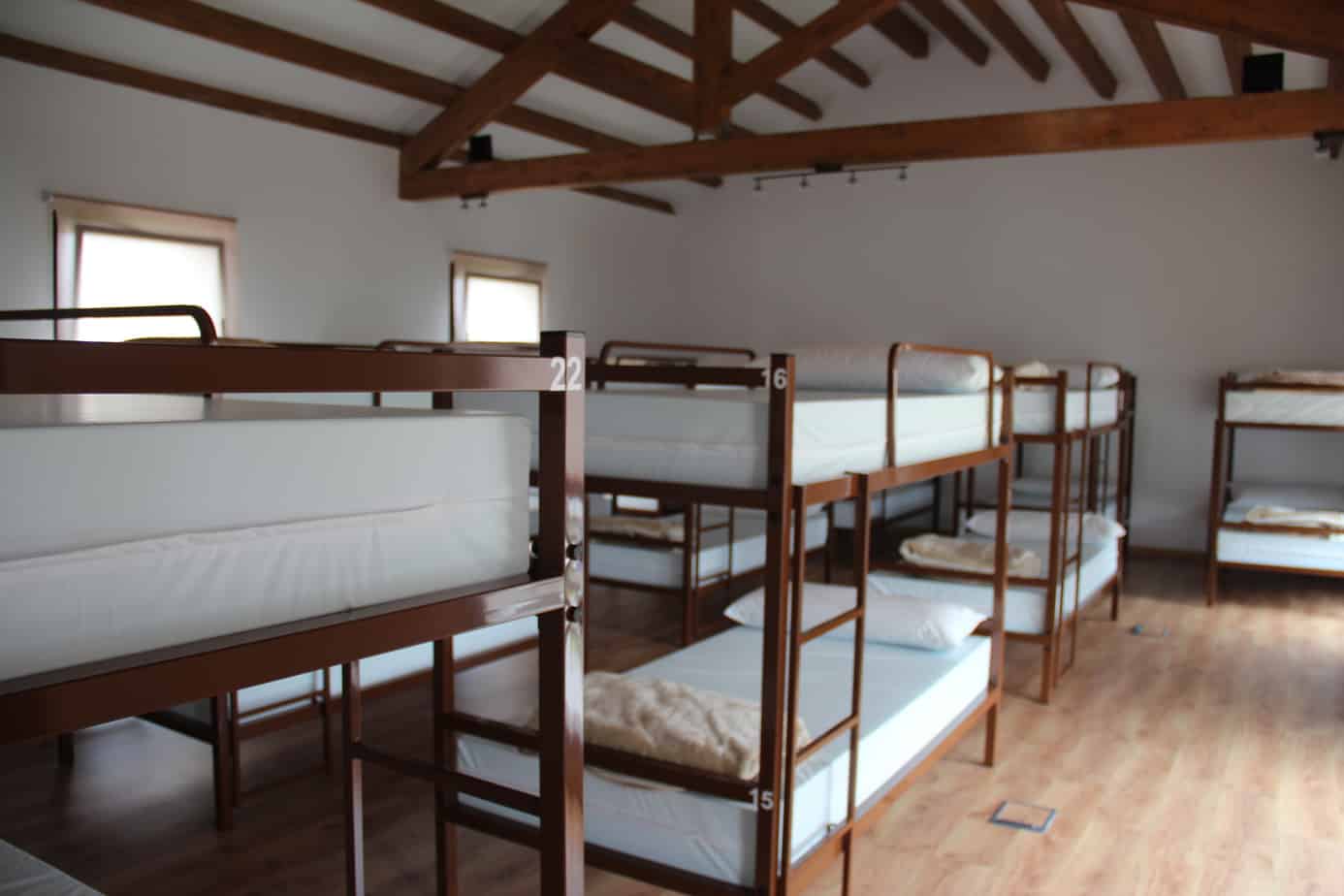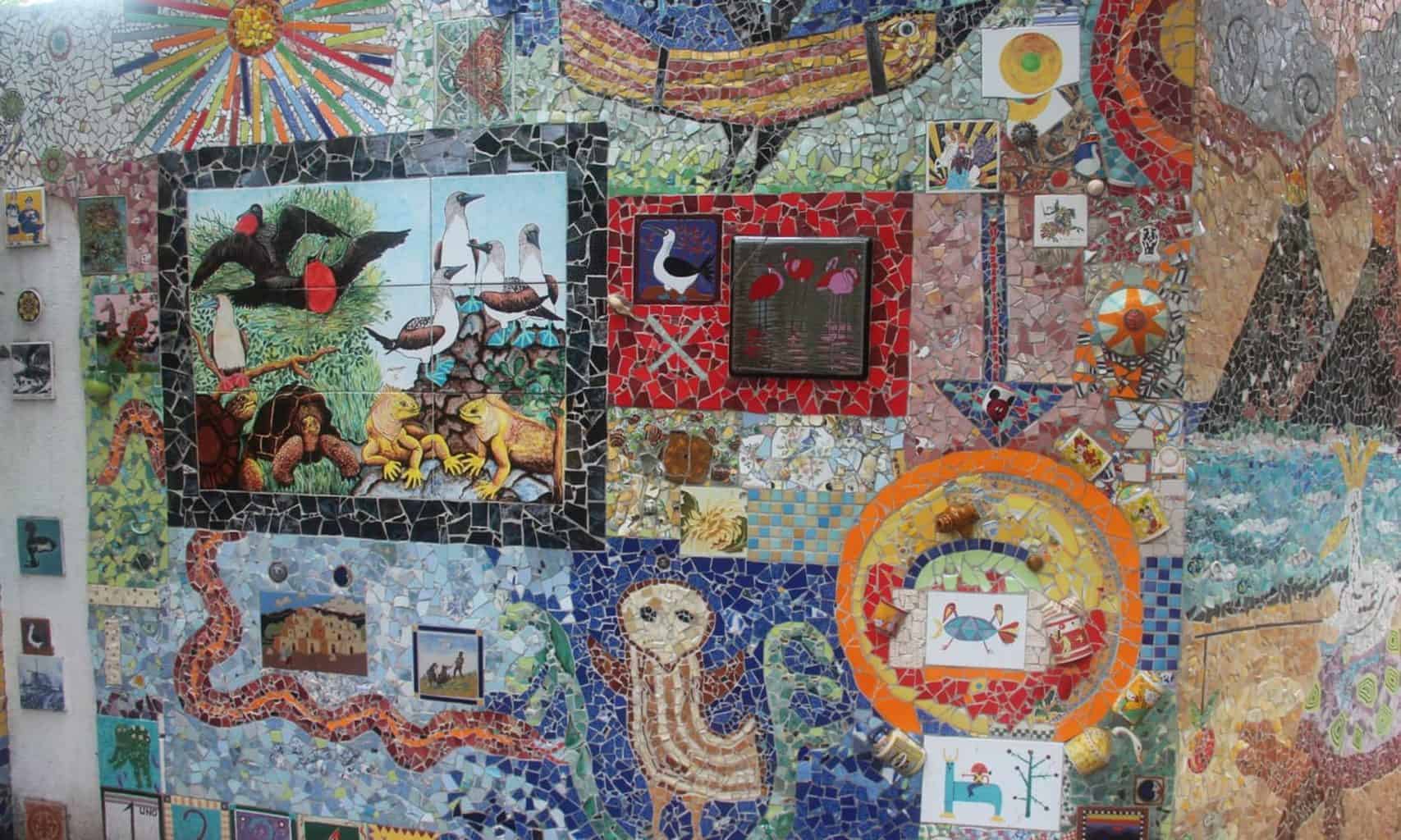Camino Community Tips are about Etiquette and Culture
Though HYOH (Hike Your Own Hike) is widely mentioned as a good rule for Camino hikers, very few people by my observation think that means anything goes. Most people seem to, at least attempt to, be polite and considerate of the people around them on the trail, in the albergues, in restaurants, and in marketplaces.
This article on camino community tips, therefore, is for those who are uncertain about some of the customs and behaviors commonly seen as they walk the Camino routes—and would like to follow those customs while in countries and situations that are unfamiliar.
Camino Community Tips in restaurants, shops, hotels, and more

Camino Community Tips #1 Shopping for produce
In France in particular, but also often in Spain, you should not touch the produce at fruit stands and farmers’ markets. Here in the U.S., we are used to poking and examining our produce before we put it in a bag, but in some countries, this is a “no no.” Instead there, the vendor selects and handles it for you (an exception might be if there are plastic bags out front on the display for you to use).
It is considered unsanitary to poke and prod the produce, so follow the custom and avoid upsetting the vendor. If the selected item does not look ok to you, gently request another one.
#2 Always greet the shopkeepers
In France, one of the camino community tips is when you enter a shop always greet the clerk or owner with a polite “Bonjour.” It wouldn’t hurt to do the same in Spain or any other place you visit, but if you neglect this in France, you are in trouble. Once I went to the information desk in a French train station and forgot to do this and got a stern lecture about my lack of manners!
#3 Camino Community Tips on Tipping
Tipping varies country to county. In some places, it is welcomed, in others people will take offense.
#3.1 France: In France, most waiters and others who provide services are paid a salary—they are not as dependent on tips as they generally are in the U.S. Usually a tip is already included in the bill. For example, in France, you will see “Service compris,” a 15% or so amount that the restaurant has included in the price that you see on the menu. This is from a law passed by the government and is intended to help provide health benefits, vacations and any retirement benefits for employees.
Tipping, in general, is not expected, but is appreciated. If your service was better than average, it is still ok to leave a small tip. At a coffee stand, bar, or lunch, you can leave a bit of change. At dinner, something between a few Euros to 5-10% for the waiter. But if service was poor, you may want to pass on the extra.
In hotels, leaving one or two Euro per day is good; for taxi drivers giving a couple of Euros for a quick ride across town, perhaps 10-15% of your fare when coming from the airport.
The consensus is that France does not have a tipping culture and that Americans tend to over-tip, which leads to resentment in some quarters. So, don’t over-tip, but when you do tip, use cash.
#3.2 Spain: Servicio (tip for service) in Spanish may appear in different ways. If the menu says servizio incluso, it means that the service (tip) is included in the menu price. If it says “servizio non incluso,” the tip is not included in the menu price, but it might be listed separately on the bill.
After figuring that out, if you decide to tip, don’t overdo. Locals generally do not tip; tourists (particularly Americans) often do. As in France, small change from your purchase of cafe con leche or lunch; a Euro or two, or 5-10% of your dinner cost, if you are so inclined.
When traveling by taxi, a fee may be charged for each piece of luggage, so don’t feel you have to tip again for your baggage being unloaded. Once again tips may be appreciated, but are not obligatory.
In albergues and pilgrim accommodations
#4 Consideration in albergues/pilgrim accommodations
Any time you are in a situation where the people around you are from different cultures, nationalities, religions, and more, you can expect to find behaviors that are unfamiliar to you. You’ll be much happier if you avoid being judgmental or expecting everything to go the way you are used to things being done.

Sharing a sleeping room requires consideration.
Some things about communal stays that may be unsettling to Americans are shared bathrooms (occasionally even shower rooms), less concern about nudity or near nudity in the sleeping rooms, and keeping windows open or closed.
However, if you want to avoid irritating other people, consider the following...
#5 Observe the quiet hours. Many albergues have a closing time; they may even lock the doors at a certain hour. If you plan to go out late to eat or party, be sure you know if you will be locked out.
#6 Even if hours are not given, avoid turning on overhead lights at 11 PM when you roll in from a late evening. (Similarly, if you come in to a sleeping room at 2 PM and find others are napping, it makes sense to unpack your belongings quietly.)
#7 Likewise, keep the noise level down. Loud conversations in nearby rooms can be disturbing to those in the sleeping room. Ear plugs are a wonderful concept, but they don’t work for some people.
#8 About those early departures
Yes, everyone needs to get up at some point—6-7 AM is common, 4 AM is early. In general, albergues want guests to be out by 8 AM., which requires most people to get up an hour or so earlier to get packed, eat if necessary, and out the door.
However, some people like to get a jump on the day and want to get up at 4 AM. If you are one of those people, plan ahead, try these ideas:
Carry your backpack out of the sleeping room to finalize packing. This will be much easier to do if you set out, or otherwise have handy, the clothes you will be wearing the next day.
#9 In your trip packing, Avoid plastic bags that rustle. Either don’t bring them, or don’t move them around when early or late hours packing/unpacking. On the camino forums plastic bag rants are not uncommon.
Don’t flip on the overhead light or flash your headlamps beyond your space. Most of us use headlamps. They are handy for packing and finding your way around, but try to be aware of where you are shining your light—and don’t let it be other people’s beds or faces.
#10 And last, but not least—don’t use an alarm that will wake others in the wee hours.
Buen Camino!
